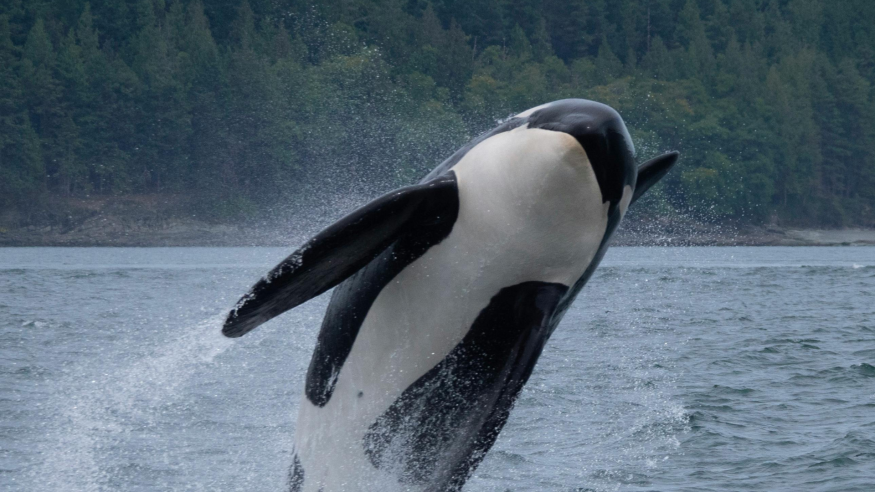
A yacht sank off the coast of Portugal on 13 September after being rammed by a pod of orcas, with all five people on board rescued by maritime authorities. The incident, captured on video near Fonte da Telha, has gone viral online, raising global attention to the growing number of boat attacks by killer whales in the Iberian Peninsula.
Viral Yacht Attack Captured on Camera
The video shows orcas repeatedly striking the stern of the vessel, focusing on its rudder and hull until the yacht began to take on water. According to the Portuguese maritime rescue service, the alert was raised at approximately 12:30 pm local time, prompting an immediate response.
PORTUGAL 🇵🇹 Orcas are tipping boats and forcing rescues in the Atlantic. On Saturday, a pod sank a tourist yacht near Fonte da Telha beach. Then on Monday, another sailboat was struck 10 miles off Costa da Caparica. Four people were evacuated to Cascais port. (Live Leak) pic.twitter.com/j3wszHu7Qp
— Toria Brooke (@realtoriabrooke) September 19, 2025
Authorities confirmed that all five passengers were safely evacuated before the yacht fully sank. The clip has been widely shared on social media platforms, sparking fascination and debate about the strength and behaviour of these apex predators.
A Pattern of Boat Encounters Since 2020
The Portuguese sinking is part of a wider trend of interactions between orcas and vessels in the region. Since 2020, sailors in Spain, Portugal and the Strait of Gibraltar have reported dozens of incidents in which killer whales targeted their boats.
Most cases involve damage to rudders, leaving vessels immobilised but afloat. In a small number of instances, yachts have sunk after sustained contact. Experts have noted that these interactions appear to be increasing in frequency, with the same subpopulation of orcas involved in repeated cases.
Why Are Orcas Targeting Boats?
Marine biologists continue to study the reasons behind this unusual behaviour. Several theories have been proposed:
- Playful or curious activity, as orcas are highly intelligent and known for experimenting with objects in their environment.
- A socially learned behaviour that may have begun with one individual and spread to others in the pod.
- Possible attraction to the noise or vibrations created by boat engines and moving rudders.
There is no scientific evidence to suggest that orcas are attempting to prey on humans or use boats as a food source. Instead, specialists stress that the attacks appear to be focused on specific parts of the vessel rather than passengers.
How Strong Are These Ocean Predators?
Claims about orca strength often go viral online. Popular reports suggest killer whales can deliver a bite force of up to 19,000 pounds per square inch (psi), a figure that would make them among the strongest biters in the animal kingdom.
However, marine experts and discussions on SharkLab forums have clarified that this figure is speculative. Unlike great white sharks, which have been estimated to bite at around 4,000 psi, orca bite force has never been directly measured in peer-reviewed studies.
What is clear is that orcas possess immense physical power. They are capable of breaching, ramming and breaking apart prey, as well as sinking vessels through repeated impact. Their coordinated behaviour in groups adds to their effectiveness as predators.
Maritime Authorities Respond
Portuguese and Spanish maritime authorities have issued navigation warnings for sailors in affected regions. Officials advise avoiding direct engagement with orcas and reporting any interactions immediately.
Rescue teams remain on standby, and sailors have been instructed on emergency protocols should their vessels be struck. At the same time, conservationists stress the importance of protecting the Iberian orcas, which are considered endangered, while ensuring the safety of those navigating the waters.
Originally published on IBTimes UK
© Copyright IBTimes 2025. All rights reserved.





